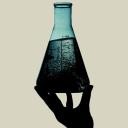 Perchloroethylene (PCE or Perc)
Perchloroethylene (PCE or Perc)
Perc is a colorless, nonflammable liquid that is used as a solvent in the dry cleaning industry as it removes stains from many types of fabric. Perc is also used to clean metal machinery.
Massachusetts has classified this chemical as a Higher Hazard Substance under the Toxics Use Reduction Act.
How am I exposed?
If you have your clothes cleaned at a dry cleaner that uses perc, you can be exposed when you bring your clothes home as perc stays on your clothes and then can evaporate into the air in your home. Emissions from dry cleaning facilities that do not properly contain perc can result in air or groundwater pollution and impact the health of the surrounding communities. Dry cleaning workers are directly exposed to perc when transferring clothes from a washer to a dryer and even more so when ironing clothes.
Why should I be concerned?
Perc is a probable human carcinogen that has been linked to leukemia and esophageal, bladder, colorectal and breast cancers. Perc exposure can also harm the digestive and nervous systems, blood, liver and urinary tract. Exposure to high levels of perc can cause headaches, dizziness, confusion, sleepiness, difficulty talking and walking, nausea, vomiting, unconsciousness, kidney damage, and possibly death.
What can government and business do?
- The best thing that dry cleaning businesses can convert to is professional wet cleaning. Many businesses in Massachusetts are already successfully using this safer technology. Technical support and some financial support is available from the Toxics Use Reduction Institute.
- The EPA is working with the dry cleaning industry to reduce emissions and over time phase out uses of perc in some settings, such as dry cleaning shops located in residential buildings. However, state and local governments should pass legislation that will aid in the process of phasing out perc for safe solutions.
How can I reduce my exposure?
- Find out what your dry cleaner is using.
- Beware! Even if the business is advertised as “green” or “eco-friendly,” it may not be.
- Look for garment cleaning businesses that offer wet cleaning (some of them don’t advertise it so you should always ask!)
- Here are some questions to ask your dry cleaner:
- What process or chemicals do you use to clean clothes?
- Is wet cleaning available at this store?
- Would you consider converting to wet cleaning?
Additional resources
Alliance for a Healthy Tomorrow: Are your clothes being green washed?
Toxics Use Reduction Institute: Fact Sheet – Alternatives to Perchloroethylene Used in Professional Garment Care
Alliance for a Healthy Tomorrow: How dry cleaning is affecting your health and neighborhood
United States Department of Labor: Reducing Worker Exposure
To Perchloroethylene (Perc) In Dry Cleaning
Department of Health: Fact Sheet: Tetrachloroethene (PERC) in Indoor & Outdoor Air
